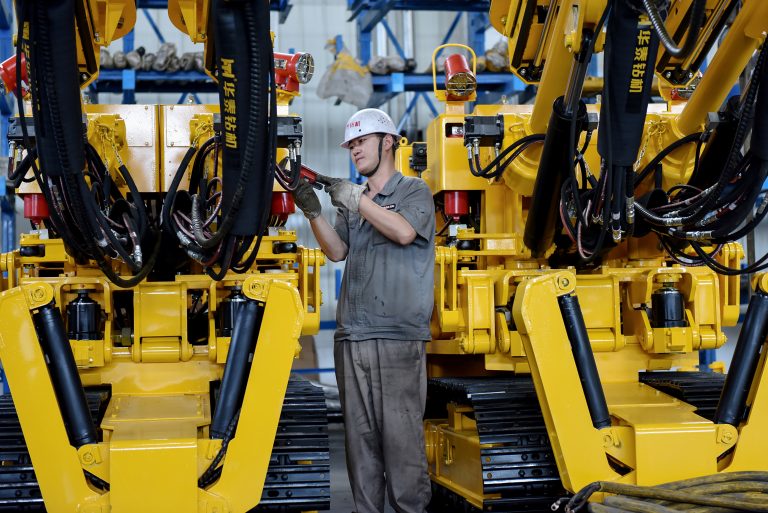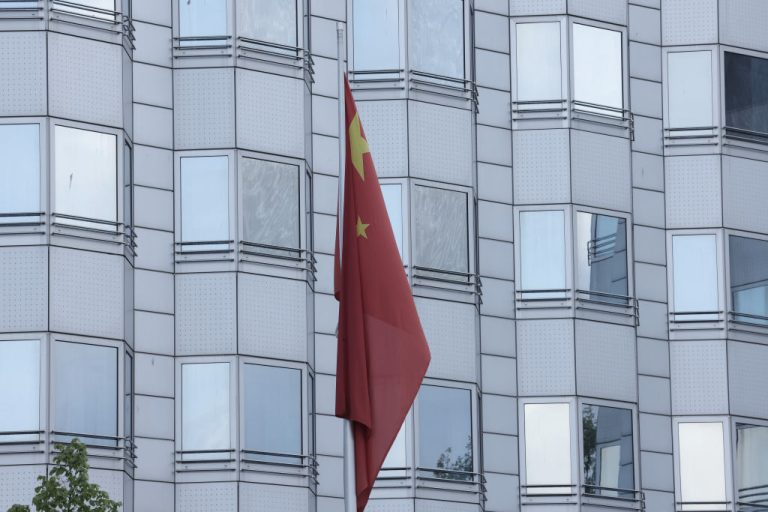As economies in the west raise interest rates in an attempt to reign in historic levels of inflation, communist China is cutting interest rates in a bid to stimulate a sputtering economy. Now fears of deflation in the red state are emerging as mainland Chinese hold onto their savings with the hope of paying less in the future.
Deflation, when prices for goods and services go down as opposed to up, has economists eyeing China as it grapples with a near perfect storm of economic woes.
The yuan is falling, industrial production is down, the youth unemployment rate exceeds 20 percent and Chinese on the mainland either don’t have enough to spend to prop up the economy or are holding on to their savings. Now enter deflation, an economic environment that some economists are describing as a “nightmare scenario.”
Data released this week indicates that the cost of a basket of goods in China remained relatively the same in June while the Producer Price Index fell sharply, indicating the country may be entering a deflationary period.
Experts say that this scenario is unfolding because people are putting off purchases, hoping that prices will fall.
Success
You are now signed up for our newsletter
Success
Check your email to complete sign up
Economist Richard Koo, recently told Bloomberg, “Individually, [people trying to save money] might be doing the right things, but collectively, they may be killing the economy.”
Deflationary spiral
One does not have to look far to see what negative effects a deflationary economy can have.
Japan has been experiencing deflation for over 20 years leading to lost decades of potential economic growth. However, this scenario has somewhat abated following the COVID-19 pandemic and the associated inflation due in large part to measures implemented by various governments to address the crisis.
Japan’s economy, while ranking third in the world when considering GDP, is still only a fraction of what China’s economy is and troubles in China will have an impact across the globe.
China is a massive source of income for many of the world’s top producers including Apple and Nike, and any slow down in production in China will inevitably be felt across industries.
Deflation is known to spur unemployment as fewer goods are purchased, profits decrease and companies layoff workers in an attempt to stop the bleeding.
A deflationary spiral may occur which is a domino effect. Falling prices results in more job losses, which in turn drives down consumer spending, which drives down demand, which lowers prices even further, making a bad situation even worse.
Should China experience deflation these consequences will be felt in more countries than just China.
READ MORE:
- Investors Wary of China’s Economy Amid Stagnant Post-Pandemic Recovery and Anticipated Stimulus Measures
- China Travel Spending Figures Show Economy Worse Than 2019
- Global Production Lags Due to Self-Imposed Restrictions
Deflation less favorable than inflation
In recent months the headlines have screamed about the cost-of-living crisis in the west as inflation reared its ugly head, but economists say this is a much more favorable situation than grappling with deflation.
Deflation is associated with economic contraction and recessions, which, if not addressed, could plunge the global economy into a depression.
During the Great Depression in the 1930s price deflation occurred in virtually every industrialized nation on the planet. Output in the U.S. didn’t recover until 1942, more than a decade after the depression began.
During the great recession in the United States between late 2007 and mid-2009, there were many concerns about deflation. Commodity prices fell, debtors found it harder to repay loans, the stock market was down and unemployment was up. Home prices dropped considerably.
What many economists believe helped the U.S. avoid a deflationary nightmare was that interest rates were still relatively high at the time, meaning companies had no choice but to keep their prices up if they wanted to earn enough to keep up their debt payments.
In this regard, Beijing cutting interest rates may backfire as companies take on more debt to finance losses, or to simply stay afloat, as prices plunge due to low consumer demand.







